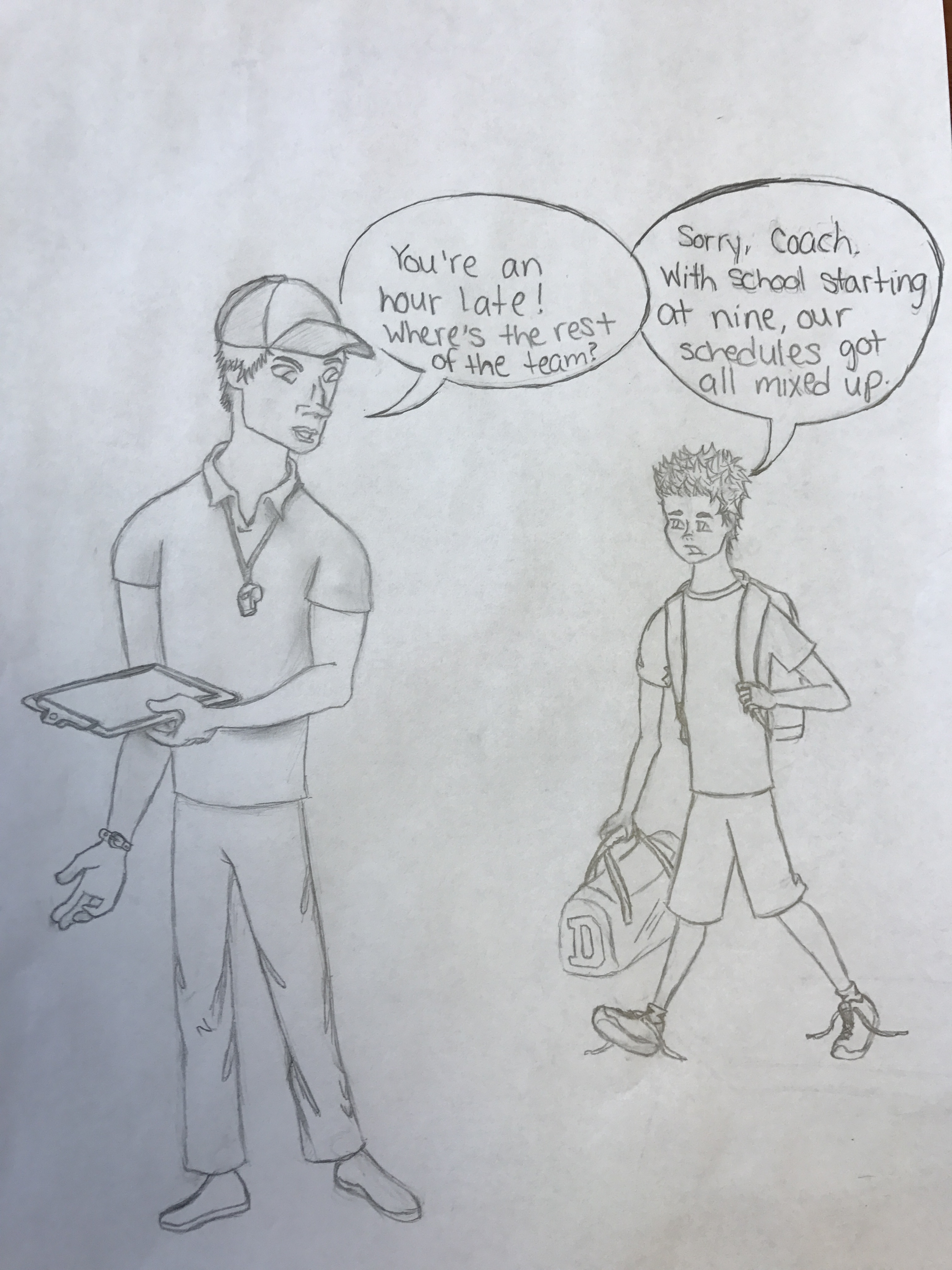Every weekday morning, millions of school goers all across the country wake up to the sound of their alarm and get ready for the school day to come. Most wish desperately to have an extra hour of sleep, still tired from the day’s previous events. Many schools around the country have opted to push their start time an hour later. However, with the average high schooler’s schedule getting busier each year, starting school an hour later will have no benefit for sleep-deprived students.
Dexter High School has been starting school at 8:00 a.m. for a long time now, and has not had any problems with its students’ test scores. Last year, DHS finished in the 97th percentile for test scores in the state of Michigan, and DHS has long been known as a strong academic school. If students’ grades and test scores continue to stay high, there is no reason to change the start time that has proven to not be a hindrance in academic achievements.
Students aren’t just known for their strong academics; many are involved in extracurricular activities such as athletics, school clubs, band, volunteering, work and much more. These activities are all run on tight schedules and are planned for months in advance. Starting school an hour later would force a massive overhaul in the scheduling of all these activities. This shift could potentially cause overlaps in scheduling and even prevent certain events from happening altogether. Likewise, the new time slots may not coincide with teachers’ and coaches’ personal schedules, preventing some from being able to coach all together.
Many students also forget that starting an hour later means finishing school an hour later. Students who are taking rigorous academic classes and are involved in many activities outside of school won’t gain any additional hours of sleep with a start time shift. Bumping school back one hour means students will more than likely get home an hour later than usual. Combined with the multiple hours of homework each night, and personal family matters, students likely will be going to bed an hour later than they normally would, resulting in the same amount of sleep as before.
The only way to work around these busy schedules is for teachers to lower the amount of homework each student receives per night. If each teacher assigned ten fewer minutes of homework each night, students would be done with their homework an hour early. Ten minutes is not a large compromise for any of the teachers, and the extra sleep time is invaluable towards how students perform on tests and other such in class activities. This would not be a challenge if all the teachers decided to work together.

Sleep-deprivation doesn’t affect all of the student body, however. Those with less rigorous schedules and who are involved with little to no extra curriculares would likely benefit from the hour delay. These students have fewer commitments, more time to do other activities outside of school, and have more time for socializing and hanging out with friends (an under appreciated aspect of high school). Unless these students choose to go to bed at a later time, they would be benefitting from the hour delay. However, many DHS students are involved in these activities, and with the growing number of people taking AP and IB classes each year, many student schedules will only get more time-consuming in the future.
Because of the growing amount of homework and the need to be involved in school activities, students will not gain an extra hour of sleep by starting school an hour later. It will only bump the time each student performs these activities to a later hour in the day. The only way to truly solve this problem is to be involved in fewer activities, reduce the amount of homework each student receives each night, or a combination of both.

